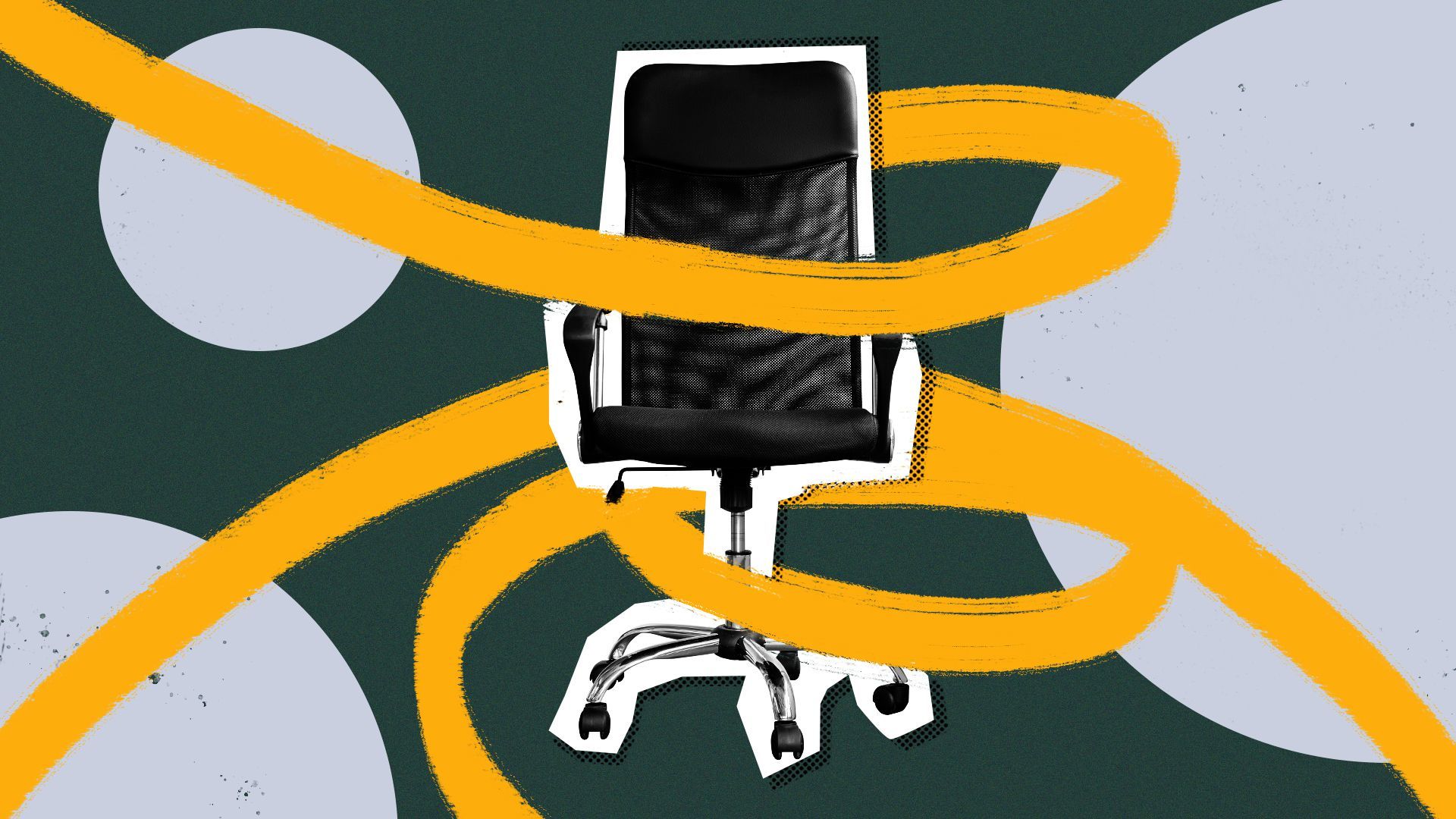| | | | | | | Presented By Chime | | | | Axios Markets | | By Aja Whitaker-Moore ·Jun 21, 2021 | | Welcome back! (Today's Smart Brevity count: 1,165 words, 4.4 minutes.) Situational awareness: Fresh off the FOMC meeting, several Fed presidents are making the rounds today, and investors will be watching for more insights into the timing of rate hikes. Send tips, or feedback to aja.moore@axios.com or write to me on Twitter @AjaWMoore. | | | | | | 1 big thing: Looking out to the second half |  | | | Illustration: Sarah Grillo/Axios | | | | Investors entered 2021 concerned about the transition to a new U.S. president, the form of new fiscal stimulus, the distribution of vaccines and the reopening of the economy. Why it matters: Stocks have rallied almost unabated for over a year, leaving many to wonder if the market is overdue for a big selloff. Last week's declines amplify those concerns. Catch up quick: The transition to a new president was anything but smooth, but it happened. Fiscal stimulus has been passed, vaccines are being administered widely and the U.S. economy has been surging. What to watch: There are two big dynamics to monitor in the second half, Credit Suisse strategist Jonathan Golub tells Axios. - First, how long does the demand for goods and services outstrip supply, keeping inflation hot?
- And second, what is the path to a more normal pace of growth?
- Persistent inflation and a disorderly slowdown are a recipe for market volatility.
What they're saying: With the S&P 500 near its all-time high of 4,257, strategists have noticeably diverse views on what's next. - Credit Suisse's Golub is bullish, predicting the S&P will rally to 4,600 by year-end amid what he calls a "benign deceleration" in growth. That's where the economy cools to modest-but-healthy growth and the market generates modest-but-healthy returns.
- RBC strategist Lori Calvasina is more cautious, telling Axios she sees "a little more room for stocks to move up but not a lot." We could see "a meaningful pullback during the second half, amounting to as much as 8%-9%," she says.
- Among other things, Calvasina cautions that measures of investor sentiment and positioning are at levels that signal the market has peaked — and is about to slide.
BofA strategist Savita Subramanian supplies the more bearish take. She thinks the S&P will fall to 3,800 by year-end. - Similar to Calvasina, she warns in a research note that investor sentiment is near-euphoric, but also notes wage inflation and potential tax hikes could hurt earnings.
The bottom line: "The stock market is not in a place where it can absorb bad news," Calvasina says. |     | | | | | | 2. Catch up quick | | President Biden is set to meet with financial regulators today to discuss priorities including climate-related financial risk, ways to promote financial inclusion and increase access to credit. (Axios) Minneapolis Fed president Neel Kashkari says the Fed's benchmark interest rate should stay near zero through at least 2023. (Reuters) The Economic Community of West African States plans to launch a single currency in 2027 for the 15-nation bloc. (Axios) American Airlines is cutting 950 flights from its schedule, including 296 over the weekend, to reduce pressure on its operations after it rapidly scaled up flying earlier this year. (WSJ) Cryptocurrency prices tumbled as China expanded its crackdown on bitcoin mining. (Reuters) |     | | | | | | 3. COVID risk lingers |  | | | Illustration: Aïda Amer/Axios | | | | COVID-19 isn't as big of a concern for U.S. investors as it was a year ago. But market experts tell Axios it's still a risk to watch as investors look to the second half of the year, Sam writes. Why it matters: Many Americans remain unvaccinated. The spread of the more infectious "Delta" variant could prove disruptive to economic activity, and in turn, could spark volatility in markets. What they're saying: According to BofA's June Global Fund Manager Survey, 10% of investors continued to identify COVID-19 as the biggest risk. - "As we head toward the end of the year, there will undoubtedly be a COVID scare — an outbreak somewhere — that could rile the market for a bit," RBA strategist Richard Bernstein tells Axios.
- "COVID — vaccines, variants — remains an important issue to monitor," says RBC's Calvasina. But investors "almost universally are baking in an optimistic virus backdrop."
- "I would not declare victory yet," Fed chair Jerome Powell said on Wednesday. "I just would encourage people to continue to get vaccinated."
Threat level: The degree to which an event will rattle markets is inversely related to how much people are already thinking about it. - As Calvasina tells Axios: "I worry more about the things that aren't on investors' horizons at all."
The bottom line: For now, the pandemic's direct impact on business is nearly gone — but not forgotten. |     | | | | | | A message from Chime | | Chime has a new model that helps Americans build wealth | | |  | | | | It should be easy to build wealth - and now, it can be. Chime's model doesn't rely on service fees, meaning we profit with our users, not off of them. Keep reading below about how Chime helps everyday Americans build wealth or visit Chime.com/impact. | | | | | | 4. Report: Retail slowdown ahead ⚠️ |  Data: U.S. Census Bureau and FTI Consulting analysis; Chart: Axios Visuals Expect retail's recent boom to ebb after June, writes Axios' Hope King. What's new: FTI Consulting writes in a report, out this morning, that for many retailers, the second quarter "might represent the last hurrah in a one-year period of above-average consumer spending on goods, largely subsidized by Uncle Sam." Why it matters: As the economy reopens, there are more experiences and services to spend money on, and the discretionary cushions are disappearing. Retail sales already dipped slightly in May. The big picture: E-commerce encroached further into brick-and-mortar market share during the pandemic, as those who had rarely shopped online were forced to do so. - The market share of online retail sales grew to 19.8% in the first quarter of this year, up from 19% in 2020 and 15.4% in 2019.
The online share will rise further. - FTI projects that online retail sales will grow 13.5% this year compared to 2020, reaching $865 billion.
- That would represent a 20.5% market share of retail sales in the U.S. (excluding cars and gas), the firm forecasts.
The Amazon effect: About 62% of the respondents to FTI's survey said they did most of their shopping online at Amazon. - However, more than 60% said they shopped direct-to-consumer channels more often last year, including 36% who said significantly more.
- Worryingly for Main Street, almost no one said they avoided Amazon in order to support smaller or local businesses.
What to watch: Whether the pandemic-induced demand for online shopping has changed behavior for good. - Less than 20% of those surveyed said they really missed in-store shopping.
- "Consumers have embraced online shopping to a new extent. We do not foresee a drastic shift or reversal in these behaviors as the economy fully reopens," J.D. Wichser, leader of FTI's retail & consumer products practice, said in a statement.
|     | | | | | | 5. Why the C-suite is out of reach for people of color |  | | | Illustration: Shoshana Gordon/Axios | | | | Climbing to the top of the corporate ladder in America is nearly impossible for people of color, writes Axios' Kate Marino as part of a Hard Truths Deep Dive series exploring systemic racism in business ownership and leadership. Why it matters: Having to navigate blind spots at all levels of the corporate chain creates a system of barriers that can be hard for organizations to acknowledge, much less address. How it works: People don't become CEOs by a twist of fate. There's intentionality in succession planning. - The underrepresentation in the C-suite endures despite a growing pile of evidence that diversity is good for the bottom line.
"The lack of Black representation has to do with a system of unconscious biases inherent in some individuals and organizations. There are systems masquerading as meritocratic, that when you dig deeper, are not," says Bradlee Benn, who co-leads executive search firm Russell Reynolds' diversity and inclusion practice. Keep Reading the Hard Truths Deep Dive. |     | | | | | | A message from Chime | | Chime is building wealth by eliminating fees | | |  | | | | Chime gives early access to direct deposits^ and eliminates service fees. Everyday Americans keep money in their pockets and can invest in their futures and communities. Learn about how Chime empowers people to build stable financial foundations. | | | | 🙏🏾Thanks for reading! |  | | The tool and templates you need for more engaging team updates. | | | | | | Axios thanks our partners for supporting our newsletters. If you're interested in advertising, learn more here.
Sponsorship has no influence on editorial content. Axios, 3100 Clarendon Blvd, Suite 1300, Arlington VA 22201 | | | You received this email because you signed up for newsletters from Axios.
Change your preferences or unsubscribe here. | | | Was this email forwarded to you?
Sign up now to get Axios in your inbox. | | | | Follow Axios on social media:    | | | | | |








No comments:
Post a Comment